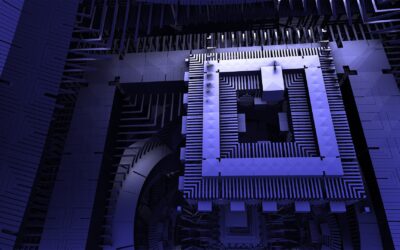Quantum Base has begun trading on the FTSE-100’s AIM market, with a value of £14.8m.
The company, which was a spin-out from Lancaster University in 2013, uses quantum science to prevent counterfeiting and secure physical products. Using Professor Robert Young’s discoveries in the field of quantum physics, it claims to provide “near unbreakable and non-replicable” authenticity tags, which can be read with smartphones.
This morning it starting trading on the AIM Market, with ordinary shares priced at 0.1p each. At the issue price, the company will have a market capitalisation of approximately £14.8m.
Its admission follows the successful completion of a fundraising of £4.8m, fundraise, through the the placing of Ordinary Shares with certain institutional and other investors and a “significantly oversubscribed” retail offer of new ordinary shares.
“I am thrilled to commence trading on AIM today, marking a key step in our decade long journey from a Lancaster University spin-out to a British scientific success story. Floating on AIM gives us direct access to a large, sophisticated pool of investors, and provides further independence and credibility for our business,” explained Tom Taylor, CEO of Quantum Base.
“The success of the Fundraise is a strong endorsement of our mission to cement ourselves as the new global standard in authentication which, in the face of a growing counterfeiting problem, is more important than ever. The funds raised will enable us to further accelerate commercialisation and expand into new product lines.
“I would first like to thank the entire Quantum Base team for their positive engagement throughout this process, as well as our team of advisers for their continuous hard work. I would also like to thank our partners and our new investors for sharing our vision for the Company, and I look forward to you sharing in our success as we work to deliver value for all our stakeholders whilst establishing Quantum Base as the leading anti-counterfeit solution.”
The technology underpinning its Quantum Identities (Q-ID’s) harnesses the randomness that is inherent at a nanometre length scale. The volume and variation of the interactions between molecules that occur at nanoscale means “that there is virtually an infinite number of combinations that can be created.”
As a result it says that its Q-ID is practically impossible to replicate using even the most advanced available technology.
The company has an authentication process to identify the printed tags through “existing and unmodified smartphone technology coupled with the Quantum Base software.”











